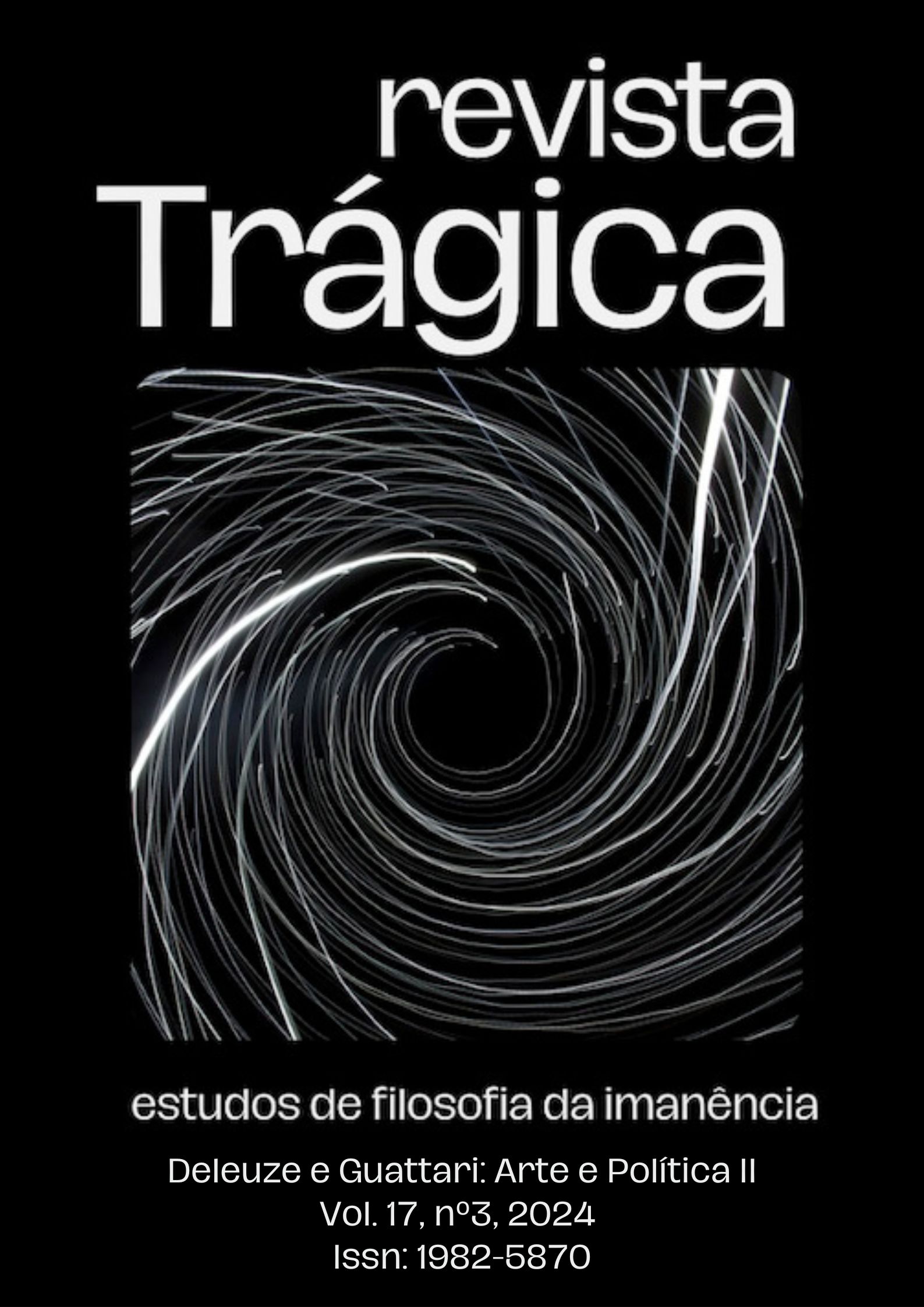O sentido de política no funcionalismo ético-estético de Gilles Deleuze
DOI:
https://doi.org/10.59488/tragica.v17i3.64206Abstract
The meaning of politics in Gilles Deleuze’s ethico-aesthetic functionalism
The purpose of this text is to discuss the concept of ethical-aesthetic functionalism insofar as it makes it possible to defend a notion of politics, based on Deleuze’s work, that escapes characterizations of his philosophy as conservative or politically impotent. After a very brief introduction to the problem, we present the concept of repetition, especially as it appears in Qu'est-ce que fonder? (1956-1957), Différence et répétition (1968) and other early Deleuzian works. Next, we demonstrate how repetition and other Deleuzian concepts relate to the notion of functionalism, based in particular on the texts L'anti-Oedipe (1972), by Deleuze and Guattari, and Deleuze et le possible (de l'involontarisme en politique), by François Zourabichvilli (1998). Finally, we demonstrate how the combination of the concepts presented and developed gives consistency to the concept of ethico-aesthetic functionalism in the context of Deleuzian politics.
Downloads
Published
Issue
Section
License
Copyright (c) 2024 Gabriel Prado Rodrigues

This work is licensed under a Creative Commons Attribution 4.0 International License.
Authors retain the copyright and grant the journal the right of first publication, with the work simultaneously licensed under the Creative Commons Attribution 4.0 International (CC BY) license. This license allows third parties to remix, adapt, and create from the published work, attributing authorship and initial publication in this journal. Authors are authorized to assume additional contracts separately, for non-exclusive distribution of the version of the work published in this journal (e.g. publishing in an institutional repository, on a personal website, publishing a translation, or as a book chapter), with recognition of authorship and initial publication in this journal.













